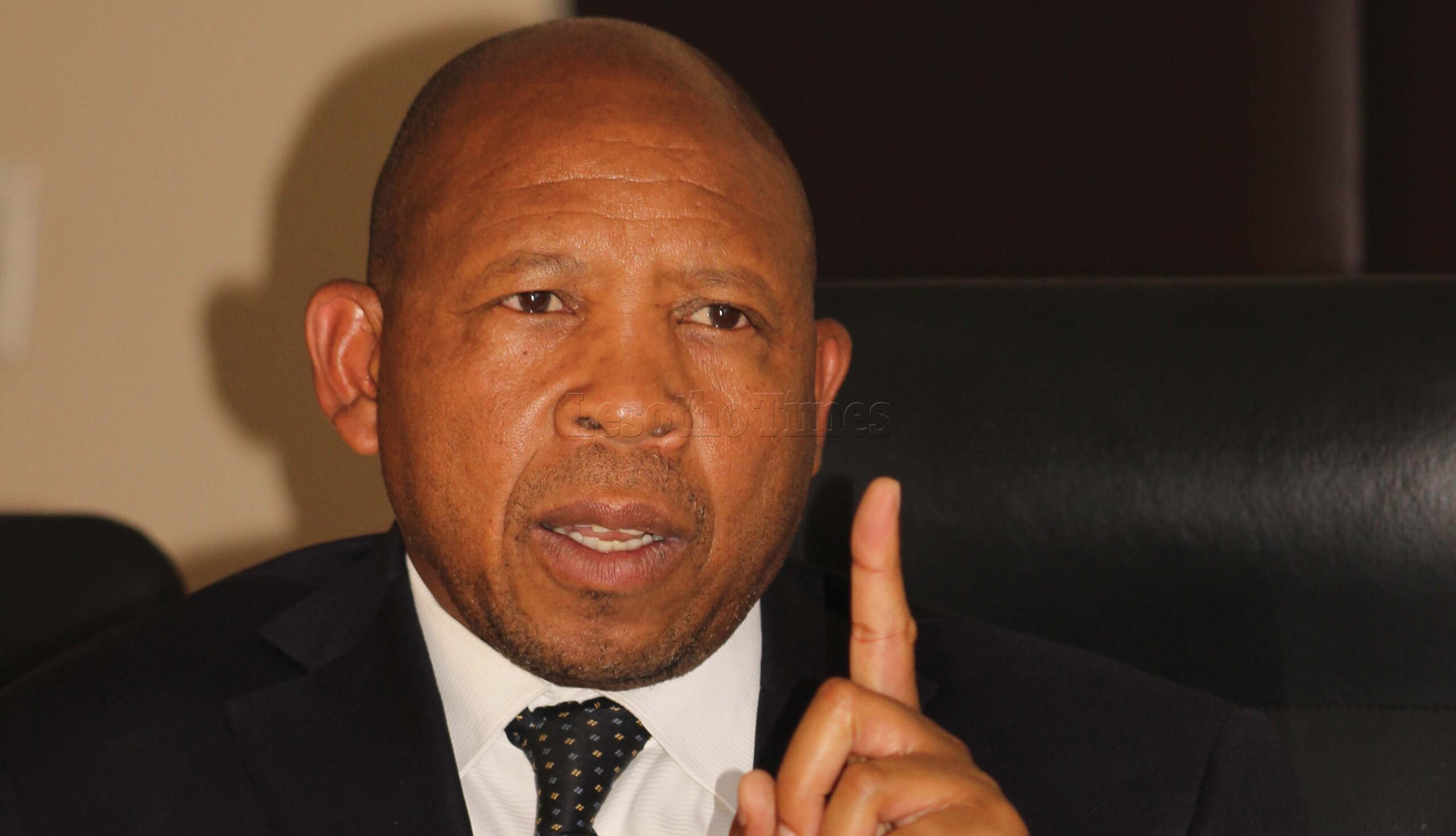THE budget presentation came and went this week and while many particularly, civil servants will feel hard done by the failure to award them salary increments, most Basotho will agree that Finance Minister Moeketsi Majoro did his best under the circumstances.
Unlike last year when civil servants were awarded a four percent salary increment, this time they had to settle for nothing because the fiscus simply cannot allow it.
Dr Majoro increased ‘sin taxes’ on alcohol (by 15 percent), tobacco (30 percent) and also proposed a three percent value added tax (VAT) on telecommunications.
These are not the kind of developments and this is not the kind of budget that will send imbibers smiling all the way to their favourite waterholes but as the forthright minister said in his budget speech, the country is in a crisis and desperate times call for desperate measures.
Dr Majoro’s budget presentation comes against the background of the recent visit to Lesotho by an International Monetary Fund (IMF) delegation which also painted a bleak picture of Lesotho’s short-term economic prospects characterised by slower than expected growth on the back of declining Southern African Customs Union (SACU) revenues and high government expenditure particularly on salaries for civil servants.
The multi-lateral lending institution recommended tough fiscal measures to mitigate the effects on the economy. Chief among these is the need for the government to reduce the high public wage bill, undertake public financial management reform as well as implement the multi-sector reforms that were recommended by the Southern African Development Community (SADC).
It said the multi-sector reforms were necessary to achieve macroeconomic stability in the country.
Now, given such advice particularly from an international development partner that we are still courting for a financial bailout, anyone should see clearly that Dr Majoro did not have any room to manoeuvre and he had no choice but to look to implementing cost-cutting measures.
It maybe the easier thing to criticise and say that more could have been done to give incentives to improve the welfare of ordinary citizens but populist policies have the downfall of many a government and the collapse of many an economy.
We have examples of countries like Zimbabwe where the former President Robert Mugabe refused to heed wise economic counsel and re-wrote his own version of economic theory and practice.
He responded to demands for higher salaries by simply ordering the printing of bank notes. These were printed and continued to become worthless until 2009 when it became necessary to completely do away with the Zimbabwe dollar.
Not only did the situation worsen, the country was left without its own currency, a situation which persist to this day.
Dr Majoro could well award everyone salary increases and eat into the country’s crucial international reserves which we need to maintain the parity of our loti currency with the South African rand.
When those reserves are eventually finished, we will be left clutching our worthless bank notes while the country will begin to reel from never before imagined crises.
We have to look at the situation very carefully and analytically.
In as much as we want as many good things out of a national budget, the guiding principle should always remain that it is more important to eat what we kill than to eat what we do not really possess.
We therefore find a lot of wisdom in the measures which Dr Majoro is proposing to rein in expenditure, support the growth of various industries and boost the capacity of the private sector to create more jobs for Basotho.
It is our hope that there will not be any resistance to the token five percent salary cut for cabinet ministers as well as other measures designed to curtail spending on unnecessary foreign junkets.
As the minister rightly said, everyone is aware of the crisis situation that we find ourselves in and those in positions of power know exactly what needs to be done.
He said what has been lacking is the political will to implement the right, albeit painful decisions.
Dr Majoro has certainly started on the right path and we can only hope that his colleagues in government and the rest of the nation can walk with him on this journey which, if fully undertaken, could result in growth and prosperity.



Army has a role in nation-building